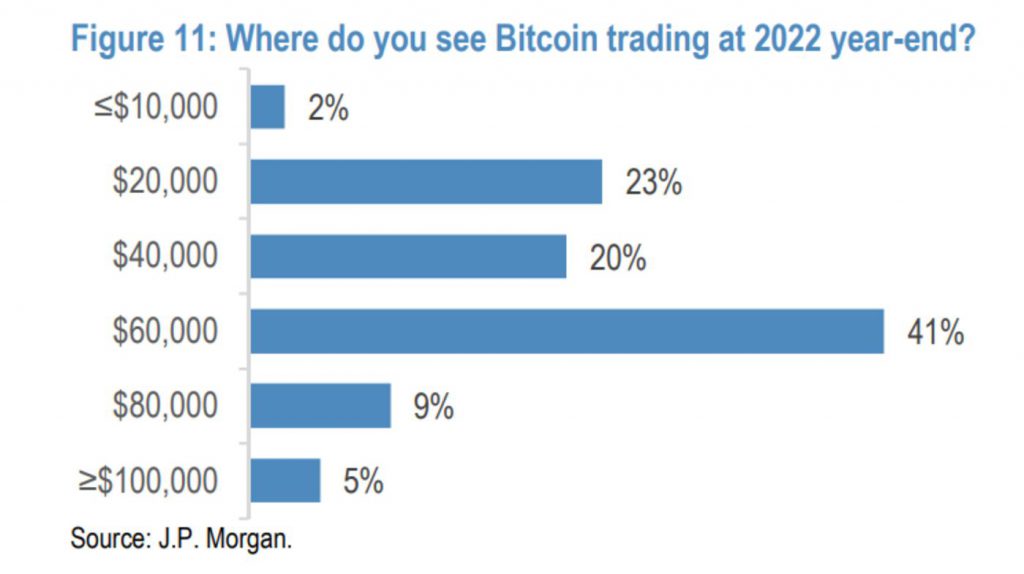One of the world’s largest investment banks has its Bitcoin (BTC) price predictions ready for 2022.
In a recent poll, JPMorgan Chase asked its clients “where do you see Bitcoin trading at 2022 year-end?” Just 5% said they saw the digital coin reaching $100,000, and 9% saw it breaking previous all-time highs, reaching over $80,000.
The bank is known for its wealthy client portfolio. While some BTC bulls may welcome the news that 14% of JPMorgan’s clients expect at least a 2x, it’s not the fireworks the crypto market is accustomed to.
On balance, however, the survey is generally positive. Most clients (55%) see BTC trading at $60,000 or above at the end of the year, with only one quarter expecting prices to slide from the recent lows of $40,000.
“I’m not surprised by Bitcoin bearishness,” said Nikolaos Panigirtzoglou, the author of the research note who works as the managing director for London at JPMorgan. He continued:
“Our Bitcoin-position indicator based on Bitcoin futures looks oversold. The coin’s fair value is between $35,000-$73,000, depending on what investors assume about its volatility ratio versus gold.”
The group, which has over $2.6 trillion assets under management, is increasingly involved in the crypto space, particularly since its own token launch, JPM Coin in 2019. Part of the Big Four of American investment banks, it has been educating its customers and investors on the pros and cons of Bitcoin since July 2021.
Related: Arcane Research releases its crypto predictions for 2022
While its cards remain close to its chest, in September last year JPMorgan’s CEO, Jamie Dimon softened his stance on Bitcoin. He shared that Bitcoin could 10x in a matter of five years, but he still won’t buy any.
It’s in contrast to fellow billionaires Ray Dalio and Bill Miller, who suggest anything from 1% to 50% is a reasonable BTC allocation.
Amidst growing institutional adoption and calls for $200,000 in 2022 from other funds such as Fundstrat Global Advisors, it begs the question. Are JPMorgan Chase clients on the money, or are the Wall Street execs and other wealthy individuals decidedly bearish?


